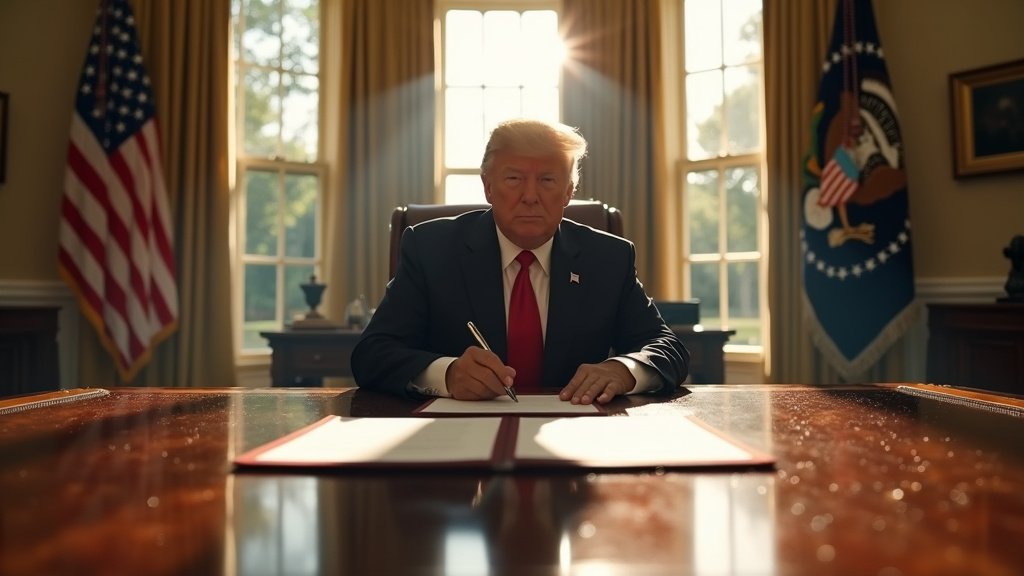Washington D.C. — The Trump administration has eliminated approximately $1 billion in federal funding initially designated for bolstering mental health services within educational institutions across the United States. The grants, which had received bipartisan support in Congress, were approved in the aftermath of the tragic 2022 Uvalde school shooting in Uvalde, Texas, an event that claimed the lives of 21 individuals, including 19 children.
According to a statement from the Education Department, the decision to cancel the significant funding allocation was directly linked to the administration’s implemented ban on initiatives promoting Diversity, Equity, and Inclusion (DEI). Officials stated that the grants, as structured, were deemed to be in violation of this ban because a primary objective was to increase the diversity of mental health professionals working in school settings.
Context of the Grants
The passage of these mental health grants reflected a legislative response to growing concerns over student well-being and the critical need for accessible mental healthcare within the school environment. Following the profound trauma inflicted by the Uvalde shooting, there was a renewed, bipartisan push to provide schools with resources to address the mental health crisis impacting students and staff. The $1 billion appropriation was seen as a substantial investment aimed at preventing future tragedies and ensuring students had access to necessary support systems.
The bipartisan approval underscored a rare moment of consensus on a critical social issue. Lawmakers from both major parties acknowledged the escalating challenges faced by schools in identifying and supporting students grappling with mental health issues, trauma, and behavioral problems. The funding was intended to facilitate the hiring of more school psychologists, counselors, social workers, and other mental health personnel, as well as to implement prevention programs and improve early intervention strategies.
Administration’s Rationale: The DEI Ban
The Trump administration’s decision to halt the distribution of these funds centers on its broad policy against Diversity, Equity, and Inclusion initiatives. The Education Department’s specific contention is that the grant program’s goal of enhancing the diversity among school mental health professionals constitutes a violation of this administrative ban. The administration has argued that DEI programs can lead to discriminatory practices or focus on identity characteristics over merit.
Critics of the administration’s DEI stance argue that efforts to increase diversity within professions like mental healthcare are crucial for ensuring that students from all backgrounds, particularly those from marginalized communities, feel comfortable seeking help and can connect with practitioners who understand their unique cultural contexts and experiences. Proponents of diversifying the mental health workforce often highlight research indicating better outcomes when patients receive care from providers with shared cultural backgrounds or lived experiences.
Potential Impact on Schools
The cancellation of $1 billion in dedicated mental health funding poses a significant challenge for school districts nationwide that may have been anticipating these resources. Schools, many already struggling with limited budgets and increased student needs post-pandemic, now face a substantial gap in potential funding that could have supported critical mental health infrastructure and personnel.
Educational leaders and mental health advocates have expressed concern about the potential consequences, which could include delayed or canceled hiring of essential staff, reduced capacity for counseling services, and fewer resources for preventative mental health programs. The unmet need for mental health support in schools remains high, and the removal of this substantial federal investment could exacerbate existing challenges.
Broader Policy Implications
This decision also highlights the ongoing political debate surrounding DEI initiatives in government and public institutions. The Trump administration has been a vocal critic of many DEI programs, viewing them as divisive or unnecessary. This move suggests a continuation of that policy approach, prioritizing the enforcement of the administration’s DEI ban over a specific, congressionally approved funding stream aimed at student welfare following a national tragedy.
The action taken by the Education Department underscores how broad administrative policies can directly impact specific programs and services, even those designed to address urgent public needs like school safety and student mental health in the wake of events like the 2022 Uvalde school shooting. The future of federal funding for school mental health, particularly programs with diversity components, remains uncertain under this administrative directive.













